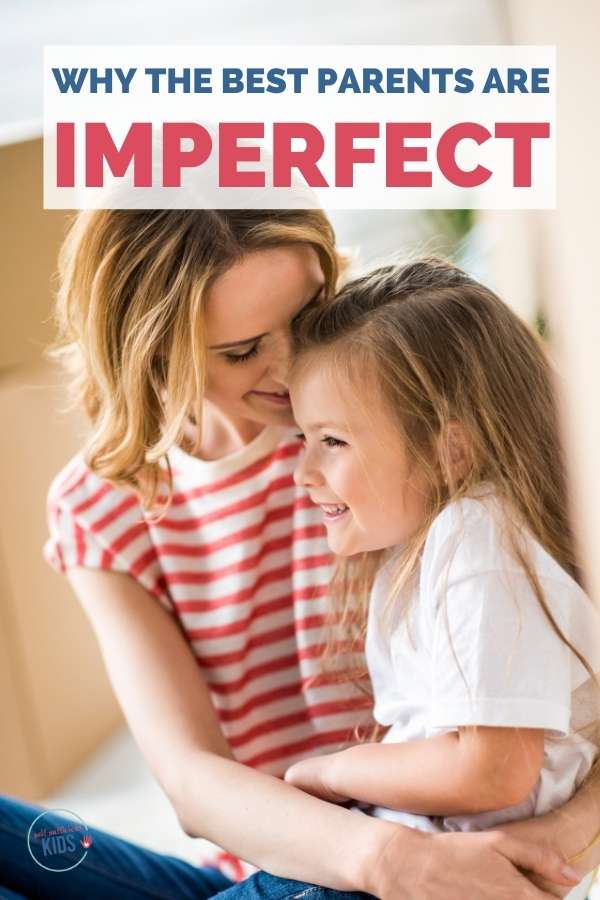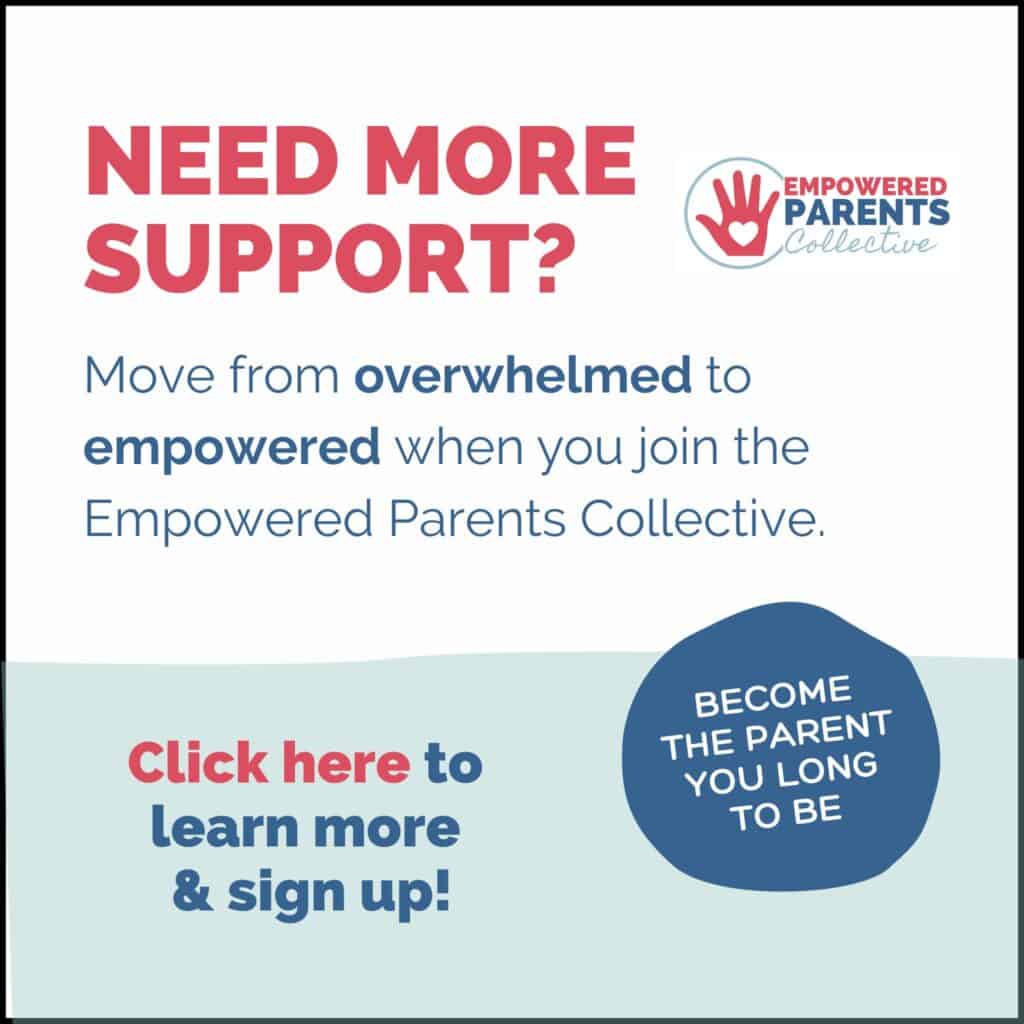Kids Don’t Want Perfect Parents, They Just Need Real Ones
Trying to be a perfect parent for your child can actually do them more harm than good. Here’s why imperfect parents make the best parents for kids’ emotional health.

“Mom, it was pajama day today and I was the only one not wearing pajamas!” my daughter exclaimed moments after descending from the school bus.
Her cheeks were pink and small tears were welling up in the corners of her eyes. She was clearly upset with me for not telling her about the special day.
My stomach dropped as I remembered the email her first grade teacher sent on Friday. After a successful food drive, the class was celebrating with a pajama day.
I was the worst mother ever.
My imagination filled with scenes from my daughter’s day: I envisioned her feeling a wave of embarrassment as she entered her classroom and discovered all her classmates in pajamas. I also suspected one or more kids walked up to her asking why she didn’t have pajamas on – making her feel like a misfit.
I felt terrible. How could I have let her down?
This wasn’t the first time I’d felt like a failure as a mother. Over the years, I’d racked up a good number of (in my mind) even more serious indiscretions.
Perfectly imperfect parents
In the early years, whenever my parenting imperfections would come to light, the guilt and shame I’d feel from letting my kids down would be consuming.
Somehow I’d acquired the belief that I had to do and say everything perfectly in order to be a good parent to my kids.
It was an easy mindset to fall into when it appeared other parents were more organized and that because of their parenting, their kids were more put-together, and well-rounded.
But over time it dawned on me that striving to be a perfect parent – one without faults – could actually be detrimental to my kids’ self-perception and personal growth.
Modeling our imperfections
Condemning ourselves for imperfections can easily lead to a perfectionist mindset. This mindset, characterized by striving for flawlessness and unrealistic perfection, can be impressed on our kids, and with it an unwillingness to take risks, express creativity, and can bring on stress, and depression.
If we don’t normalize imperfections for our kids, and instead only present them with an image of perfection, they, too, could fall into a perfectionist mindset.
In order to raise children who are resilient, embrace challenges, and have a positive sense of self, we need to help them view their mistakes and imperfections as opportunities to grow and learn.
By shedding our own perfectionist tendencies, and not condemning ourselves for our mistakes and imperfections, our children can recognize that they too can be free from them.
So rather than feeling like a terrible parent for making a mistake – like forgetting an important event! – we should use these situations to help our children learn and grow.
Here are a few ways parents can do this:
Admitting our mistakes
It can often feel uncomfortable for parents to admit mistakes to their kids, especially if they feel they need to project an image of being in charge and in control.
But admitting when we’ve done something wrong, whether it’s forgetting about a pajama day or being too stern with our child, helps kids feel more comfortable with their own mistakes.
And rather than weaken our authority with our kids, this admission can cause kids to respect us more and build trust in our relationships with them.
Of course, simply apologizing or acknowledging a discretion like yelling at our kids isn’t enough. Kids will also be attuned to whether or not we try to improve, if the situation calls for it.

Exposing our flaws
Exposing our flaws demonstrates to our children that we know we’re imperfect, which in turn tells kids they don’t have to expect unrealistic perfection in themselves.
We don’t have to go out of our way to expose every flaw we perceive in ourselves. That may backfire and give kids the impression that we have poor self-esteem.
The idea is simply to demonstrate to our children we recognize our short-comings, rather than feel shame or hide them. It could be as mild as admitting we don’t think of ourselves as a talented singer. Or more importantly, acknowledging to our kids that our temper flares when emotions run strong, leading us to say things we don’t mean.
It’s also helpful to follow up any admission by explaining how we’re working to improve, that we want to do better, and that we just haven’t achieved it yet. This probably isn’t necessary in the case of a poor singing voice, but is important in cases like a temper.
Sharing our struggles
It can be difficult for children to have perspective when it comes to their parents. Since our children weren’t able to witness the struggles and challenges we experienced growing up, they may perceive that we’ve never struggled.
With this perception in mind, kids might feel ashamed about their challenges, causing them to hide them from us rather than reaching out for help.
That’s why whenever we get the chance, it can be beneficial for us to share with our children the challenges we’ve faced and, if possible, how we overcame them.
For example, a child struggling with division may be encouraged to hear that their now math-proficient parent struggled with it at first too. Or a child struggling with a friendship may benefit to hear that their parent had a challenging experience with a friend in middle school.
A truly perfect parent
Instead of focusing on the outward appearance of perfection, truly “perfect” parents focus on the basics kids need from them to thrive.
And those basics all steam from striving to show our kids unconditional love.
Unconditional love means loving children (or anyone) without strings attached and accepting them for who they are and letting go of who we want them to be. There should be no messages, spoken or unspoken, that would lead a child to believe they need to be someone other than who they are to receive our love.
It also means spending time to bond with our kids – to listen to them, talk with them, and get to know them, letting them know they matter. It doesn’t take much to accomplish this. Even just ten minutes a day of focused time on our children can make a huge difference (and a difference in their behavior too).
What happened next…
After my daughter expressed her anger and frustration with me for forgetting her special day, I felt horrible and immediately apologized.
She moped around the house for a few more minutes, clearly upset with me. She was annoyed and embarrassed, and had every right to feel that way.
After letting her cool off for a few minutes, I sat next to her at the kitchen table as she ate a banana.
“I feel terrible that I forgot your pajama day,” I said. “You probably felt embarrassed being the only kid who wasn’t in pajamas.”
Still not looking at me, she shook her head as she tried to hold back tears.
“I can be really terrible about remembering to put things in my calendar and set an alarm to remind me. After this, I’m going to try to do better. I hope you’ll forgive me, but I understand why you’re upset.”
A minute or two passed and she calmed down a bit more. We hugged, I said sorry one more time, and we carried on with our day.
That night I apologized again before she went to sleep for what had happened. I still felt terrible but it seemed that our relationship was on the mend.
Over the years, I’ve noticed that both my girls have gotten better at not condemning themselves when they make a mistake. While I can’t attribute that completely to me admitting my own mistakes, I’d like to believe it plays at least a part.
And the next time I received an email about a special event? Well, I don’t have a spotless record of remembering to update our calendar, but the reminder app on my phone has recently gotten a lot more use.
See related:
Why Positive Parenting is Essential for Raising Self-Sufficient Kids
10 Parenting Practices That Pay Big Dividends When Kids Are Older
Get Your Kids to Listen to You + Strengthen Your Bond With Them at The Same Time
What to do next…
1. Subscribe to Self-Sufficient Kids’ email list.
Like what you read here and want to learn more? Every Thursday I’ll send you one parenting tip about raising self-sufficient kids and creating the peaceful relationship you yearn to have with your child. Click here to sign up.
2. Take one of my quizzes!
Find out if you’re raising a self-sufficient kid (click here) or if you’re doing too much for your kids (click here). At the end of each quiz, you’ll be asked to provide your email address to see the results.
3. Get your kids started on chores.
Learn how to get your child started on chores (& keep them motivated + avoid power struggles) by enrolling in my Get Your Kids Successfully Started on Chores course. Click here to learn more and sign up.

About Kerry Flatley
Hi! I’m Kerry, the mother of two girls and a certified parent educator. I believe it is possible for parents to have a supportive, loving, and warm relationship with their kids while raising them to be independent and ultimately self-sufficient. Over the years, I’ve read numerous books and articles that support this belief and I’ve put these ideas into practice with my own kids. Read more about me and Self-Sufficient Kids here.


